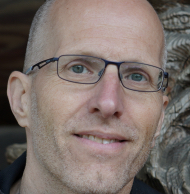Roland B.
Walter
M.D., Ph.D., M.S.

206-667-3599
Fred Hutchinson Cancer Center
1100 Fairview Ave. N., D1-100
Seattle, WA 98109-1024
education, training, board certifications
- M.D., University of Zurich, Switzerland
- M.S., Ph.D., University of Washington
- Residency in Internal Medicine, University Hospital of Zurich, Switzerland
- Fellowship in Hematology, UW/Fred Hutch
- Internal Medicine, American Board of Internal Medicine
- Hematology, American Board of Internal Medicine
clinical expertise
- Acute myeloid leukemia
- Acute promyelocytic leukemia
- Hematopoietic cell transplantation
Affiliations
- University of Washington
- Fred Hutchinson Cancer Center - Faculty and Labs
- Fred Hutchinson Cancer Center - Provider
- Walter Lab
publications
clinical and/or research interests
Dr. Roland Walter's clinical work is focused on acute myeloid leukemia and hematopoietic stem cell transplantation.
His lab research is focused on acute myeloid leukemia (AML). He is particularly interested in improving antibody-based therapies, both by optimizing the efficacy/safety profile of existing therapeutics and through the preclinical and early clinical development of novel antigen-directed immunotherapies. As examples of latter efforts, his lab has contributed to candidate drug identification and preclinical development of 5 novel agents that have subsequently advanced to clinical testing (SGN-CD33A, SGN-CD123A, AMG 330, AMV-564, and APVO436). A major area of focus of their research lies in the delineation of the mechanisms of action and resistance that are relevant for antibody-based AML therapeutics and the rational development of combination therapies that can overcome drug resistance. Many of his studies conducted over the last 15+ years have aimed at optimizing CD33-targeted and, more recently, CD123-targeted therapies. In clinical studies, he conducts trials testing novel treatments and innovative care approaches for AML patients. Furthermore, in collaborative research, he uses large patient datasets to develop and improve diagnostic and prognostic tools for people with AML.



